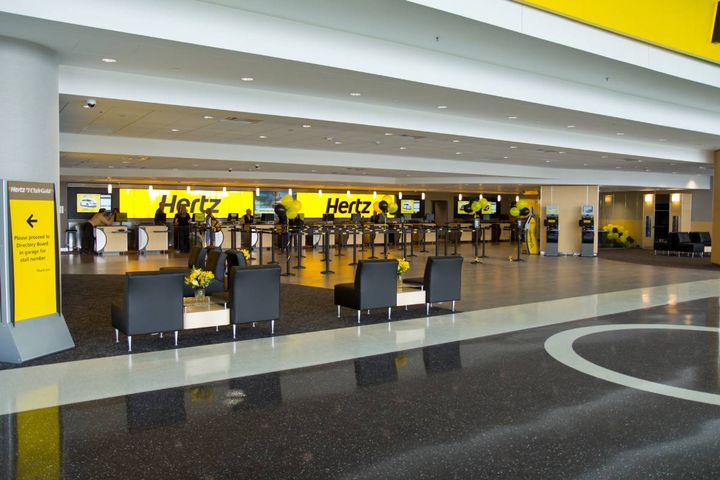
Hertz said it expects to relist on a major exchange by year-end 2021.
Photo via Atomic Taco/Flickr.
Hertz Global Holdings announced financial results for the second quarter of 2021 on August 9.
For Q2, the company generated total revenues of $1.9 billion, attributed to strong leisure travel demand and tighter fleet inventory. Adjusted corporate EBITDA was $639 million, resulting in a 34% margin. Hertz says the improvement is the result of strong revenues, efficient fleet management, and over $400 million of structural, and recurring, cost reduction. Hertz generated a net loss of $168 million or $1.05 loss per share, which included $633 million of reorganization expenses.
“Hertz delivered an outstanding second quarter as travel continued to rebound,” said Paul Stone, Hertz Global’s president and CEO. “With resurgent demand and tight supply across the industry, we remained agile in managing our fleet to meet customers’ needs.”
Hertz Global emerged from its Chapter 11 process on June 30, 2021. The company said in its report that it anticipates a re-IPO, including hosting an investor roadshow and relisting on a major exchange by year-end 2021.

Hertz averaged 350,122 vehicles in its Americas fleet, compared to 575,172 in the second quarter of 2019, a drop of 39%. While transaction days dipped 41% compared to the second quarter of 2019, total revenue per day (RPD) was up 53%.
Chart: Hertz
Americas RAC second quarter 2021 revenues reflect upward pricing trends due to continued positive momentum in domestic travel combined with industry-wide fleet constraints. Americas RAC adjusted EBITDA was $664 million and a margin of 40%.
International RAC adjusted EBITDA loss was $1 million, reflecting an improvement of $111 million year-over-year.
The company emerged from Chapter 11 with lower non-vehicle debt levels relative to its pre-Chapter 11 balance sheet.
The company’s liquidity position totaled $3.0 billion at June 30, 2021, comprised of $1.8 billion in unrestricted cash and $1.2 billion of availability under the First Lien RCF.
The company also refinanced its ABS program with $2.8 billion of committed funding under a two-year, floating rate syndicated bank sponsored Variable Funding Rental Car Asset Backed Notes, of which $2.3 billion was drawn at June 30, 2021. The company also issued $4 billion in Fixed Rate Rental Car Asset Backed Notes split evenly between three- and five-year maturities. The overall cost of the ABS funding in the United States is currently below 2%.
